- Interesting for you
- My settings

Chemistry in Australia

Why Study Chemistry in Australia
- Studying Chemistry in Australia is a great choice, as there are 9 universities that offer PhD degrees on our portal.
- Over 458,000 international students choose Australia for their studies, which suggests you’ll enjoy a vibrant and culturally diverse learning experience and make friends from all over the world.
- We counted 63 affordable PhD degrees in Australia , allowing you to access quality higher education without breaking the bank. Moreover, there are 206 available scholarships you can apply to.
9 Chemistry PhDs in Australia

Chemistry We offer exceptional research Chemistry degrees at Australian National University. The Australian... Australian National University Canberra, Australian Capital Territory, Australia
Chemical or Physical Sciences Undertake a PhD in Chemical or Physical Sciences at the Flinders University. Fuel your passion for... Flinders University Adelaide, South Australia, Australia
Biology and Chemistry Explore various theories surrounding political, social and contemporary issues in biological and chemical... Deakin University Melbourne, Victoria, Australia
Natural and Physical Sciences Designed for high performing university graduates, the Natural and Physical Sciences program from James... James Cook University Townsville, Queensland, Australia
Study in Australia
By studying in Australia you will take advantage of the great student environment both inside and outside classrooms. In addition to some of the best business and engineering schools in the world, you will be able to explore a greatly developed country that still retains its wild side with its warm climate, beautiful beaches, and the Great Outback, with over 500 national parks. Many Australian universities provide internships and work placements, preparing students early on for the job market.
Is Australia the right place for you?
Take the test and find out which country is your best fit.
Explore your Chemistry degree
A Chemistry degree explores the world of matter, its properties, and reactions. Specialisations include Organic, Inorganic, Physical, Analytical, and Biochemistry. Courses cover topics like organic synthesis, thermodynamics, spectroscopy, quantum mechanics, and environmental chemistry. Skills gained are valuable in healthcare, environmental fields, and various industries. Curiosity, precision, and analytical thinking are essential. Career options include Analytical Chemist, Forensic Scientist, Pharmacologist, Toxicologist, and Research Scientist, with opportunities to make significant contributions to human progress. A Chemistry degree is a rewarding path for those passionate about continuous learning and discovery.
Is Chemistry the best for you?
Take the test and find out if Chemistry is the right path for you.
Go to your profile page to get personalised recommendations!
PhD (Applied Chemistry)
- RMIT Europe
- RMIT Global
- RMIT Vietnam
- Study online
- Courses by study area
- Undergraduate courses
- Postgraduate courses
- Vocational studies
- Pre-university studies
- Online courses and degrees
- Entry pathways
- Single courses
- Short courses and microcredentials
- Courses for international students
- How to apply
- Scholarships
- School leaver information
- Student services
- Student experience
- Frequently asked questions
- Career advisers
- Study experience
- Student life
- Support for students
- Global opportunities
- Industry connections
- Our strategy
- Governance & management
- Schools & colleges
- Respect for Australian Indigenous cultures
- Our locations and facilities
- Our heritage
- Our research
- Partnerships
- Centres and collaborations
- Research degrees
- Find researchers
- Recruit students and graduates
- Workforce development
- Collaborate with RMIT
- Research partnerships
- Facilities, equipment and services
- Contact Industry Engagement
- Giving to RMIT
- Study in Australia
- Apply to RMIT as an international student
- International student enquiries
- Fees and scholarships for international students
- International student services
- Key dates for international students
Use advanced research skills to contribute to developments in applied chemistry and/or the grand environmental challenges of our age.
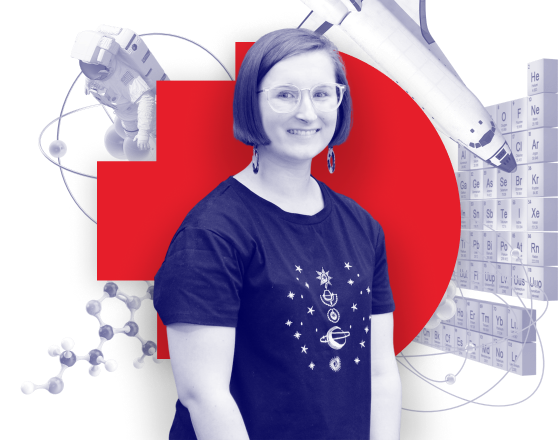
You're viewing program information for local students.
RMIT considers you a local student if you are:
- a citizen or permanent resident of Australia, or
- a New Zealand citizen, or
- a person seeking asylum who holds either a: Temporary Protection Visa (TPV), or Safe Haven Enterprise Visa (SHEV) or Bridging Visa E or Humanitarian Stay (Temporary) visa or Temporary Humanitarian Concern Visa.
Asylum seekers who reside in Australia and study onshore are required to pay international onshore tuition fees for higher education courses.
If you are unsure or hold a different visa type, please contact Study@RMIT for more information.
Not a local student?
You're viewing program information for international students..
RMIT considers you an international student if you are:
- intending to study on a student visa, or
- not a citizen or permanent resident of Australia, or
- not a New Zealand citizen, or
- not a a person seeking asylum who holds either a: Temporary Protection Visa (TPV), or Safe Haven Enterprise Visa (SHEV) or Bridging Visa E or Humanitarian Stay (Temporary) visa or Temporary Humanitarian Concern Visa.
If you are unsure or hold a different visa type, please contact Study@RMIT for more information.
Not an international student?
Not applicable
Research Training Scheme
See admissions
AU$36,480 (2024 annual)
RMIT's modern, purpose-built and well-equipped facilities, including analytical instrumentation, will support your research.
The School of Science has expertise in molecular modelling, chemo-metrics and micrometeorology that has found applications spanning multiple research fields.
Under expert supervision, you will join researchers already active in:
- analytical chemistry (metabolomics, natural products extraction and identification)
- separation science (focus on gas and liquid chromatography), flow injection analysis and mass spectrometry
- environmental analysis (air, soil and water quality; environmental contamination; biosolids; environmental toxicology)
- physical and materials chemistry (organic and inorganic synthesis, colloidal chemistry, functional surfaces, micro- and nano-technologies, nano-biotechnology, electrochemistry, heterogeneous catalysis, photocatalysis)
- interdisciplinary ecosystem restoration.
This PhD may be undertaken in a project, thesis with publication or thesis mode. Prospective candidates should discuss these modes of submission with their potential supervisors.
Research collaborations
Many of our research activities are conducted within these related research centres:
- Centre for Advanced Materials and Industrial Chemistry
- Centre for Molecular and Nanoscale Physics.
The School of Science’s researchers have a demonstrated record of success in collaborations, funding and research publications.
Our research staff
You will work with researchers who are past and present winners of:
- ARC Future Fellowships and DECRAs
- AGR Matthey Gold medal for outstanding contribution in the field of applied gold chemistry
- RK Murphy Medal for Industrial Chemistry
- Silver Jubilee Medal of the Chromatographic Society, London
- CLRI Padmabhushan Dr Y Nayudamma Chemcon Distinguished Speaker Award (awarded by the Indian Institute of Chemical Engineers).
The majority of our research staff are Members and Fellows of professional societies including:
- the Australian Academy of Technological Sciences and Engineering
- the Royal Society of Chemistry (RSC), UK
- the Royal Australian Chemical Institute (RACI).
In the 2015 Excellence in Research for Australia assessments, we were ranked at ‘well above world standard’ for physical chemistry and ‘above world standard’ for analytical chemistry.
Research support
Throughout your candidature, you will be supported through:
- expert supervision
- participation in high-quality professional development programs delivered by RMIT's School of Graduate Research
- access to RMIT's extensive facilities, laboratories and equipment and those of our partners.
Candidates may be eligible for a range of scholarships including:
- Australian Postgraduate Awards – funded by the Australian Government
- PhD and Research Masters Scholarships – funded by RMIT University
- PhD scholarships in computer science and IT – funded by the School of Science
- other postgraduate research scholarships.
How you will learn
Research at rmit, time spent on research.
Full-time candidates are expected to commit at least four days per week (or at least two days per week for part-time candidates) to their research. The academic year is 48 weeks.
Regular contact with your supervisor
A schedule of meetings with your supervisor/s must be established to assess progress against milestones and timely completion.
Resources, facilities and support
You will have access to the Learning Hub and other online and digital resources through the myRMIT student portal.
You will be part of an active research community and have access to resources and workshops to help you succeed.
School of Graduate Research
The School of Graduate Research works with Schools to further support candidates during their postgraduate research degree.
RMIT University is committed to providing you with an education that strongly links formal learning with professional or vocational practice.
PhD candidates are given the opportunity to work closely with industry and government organisation scientists while undertaking their PhD.
RMIT has industry partnerships with companies such as:
- Agilent Technologies
- Alcoa World Alumina
- BHP-Billiton
- Cell Therapies Pty Ltd
- Ceramic Fuel Cells Ltd
- Grains Research and Development Corporation (GRDC)
- Hone Carbon
The cross-disciplinary focus of chemistry and environmental science research also involves regular collaboration with biomedical institutions across Australia including:
- Burnet Institute
- National Health and Medical Research Council (NHMRC) Clinical Trial Centre in Sydney
- Peter MacCallum Cancer Centre
- St Vincent's Hospital and Austin Hospital in Melbourne.
Learning outcomes
The knowledge and skills you will acquire throughout this degree and how they can be applied in your career are described in the learning outcomes .
Electives and course plan
You will complete this program under academic supervision.
The PhD program is structured to enable you to:
- complete a compulsory research methods course
- receive training in research integrity and ethics
- select studies in qualitative and quantitative research techniques
- complete a thesis/project which demonstrates your original contribution to the field and your ability to communicate complex or original research for peers and the community to an international standard
Research integrity modules
You are required to complete the online modules:
- Research integrity
- Copyright and intellectual property
Research methods for sciences
Research methods courses step you through the literature review and preparing your research proposal for confirmation of candidature. They are taught in large discipline groups.
You may need to complete an ethics module to ensure your research is ethical and responsible.
Research techniques
You may elect to take (where relevant) electives in qualitative or quantitative research techniques once data collection has begun. You can use your own data to explore different research analysis techniques. Your supervisor will help you decide when you should take these electives.
Co-curricular activities
You are encouraged to participate in activities offered with the university, college and school according to your needs and interests.
This PhD may be undertaken in a project, thesis by publication or thesis mode. Prospective candidates should discuss these modes of submission with their potential supervisor/s.
Course structure
Choose a plan below to find out more about the subjects you will study and the course structure.
*The maximum duration of the PhD program is 4 years full-time and 8 years part-time. However, candidates are expected to complete their program within 3-4 years full-time equivalent and 6-8 years part-time equivalent.
*The maximum duration of the PhD program is 4 years full-time. However, candidates are expected to complete their program within 3-4 years full-time equivalent.
Note: International student visa holders can only study full-time.
You will be able to pursue an academic career in a university or be employed in senior leadership and management positions in government, scientific and industrial research laboratories.
Minimum requirements for admission
Prerequisites, selection tasks.
The minimum requirements for admission to a PhD program are:
- a bachelor degree requiring at least four years of full-time study in a relevant discipline awarded with honours. The degree should include a research component comprised of a thesis, other research projects or research methodology courses that constitute at least 25% of a full-time academic year (or part-time equivalent). The applicant must have achieved at least a distinction average in the final year; or
- a master degree that includes a research component comprised of at least 25% of a full-time academic year (or part-time equivalent) with an overall distinction average or a master degree without a research component with at least a high distinction average; or
- evidence of appropriate academic qualifications and/or experience that satisfies the Associate Deputy Vice-Chancellor, Research Training and Development or nominee that the applicant has developed knowledge of the field of study or cognate field and the potential for research sufficient to undertake the proposed program.
At RMIT a grade of distinction represents academic achievement of 70% or higher and a high distinction is 80% or higher.
If you are a current master by research candidate, you are able to apply for a transfer to a doctor of philosophy program through the process prescribed in the RMIT Higher Degree by Research policy .
These entrance requirements are the minimum academic standard you must meet in order to be eligible to apply for the program. You will need to complete a selection task as part of your application.
A selection process will be conducted in conjunction with the School and supervisors you nominate.
For further information on the steps you need to take to apply for a research program see How to apply – Research programs .
English language requirements
Research proposal and supervisor.
You must attach a substantive research proposal that is 2 to 5 pages in length which articulates the intent, significance and originality of the proposed topic using the following headings:
a) title / topic b) research questions to be investigated in the context of existing research/literature in the area c) significance and impact of the research d) methodology / research tasks required to undertake the research e) particular needs (e.g. resources, facilities, fieldwork or equipment that are necessary for your proposed research program, if applicable).
Your application will not be considered if you have not discussed your research topic with a proposed senior and associate supervisor or joint senior supervisors. You must provide the names of the academic staff in the school you have applied to and with whom you have discussed your proposed research.
To study this course you will need to complete one of the following English proficiency tests:
- IELTS (Academic): minimum overall band of 6.5 (with no individual band below 6.0)
- TOEFL (Internet Based Test - IBT): minimum overall score of 79 (with minimum of 13 in Reading, 12 in Listening, 18 in Speaking and 21 in Writing)
- Pearson Test of English (Academic) (PTE (A)): minimum score of 58 (with no communication band less than 50)
- Cambridge English: Advanced (CAE): minimum of 176 with no less than 169 in any component.
For detailed information on English language requirements and other proficiency tests recognised by RMIT, visit English language requirements and equivalency information .
Don't meet the English language test scores? Complete an English for Academic Purposes (EAP) Advanced Plus Certificate at RMIT English Worldwide .
You can gain entry to this program from a range of RMIT four year Bachelor and Honours degrees or Postgraduate or Masters by Research programs.
Fee summary
Fee information for masters by research and doctorate (PhD) programs.
If you are an Australian citizen, Australian permanent resident or New Zealand citizen you may be eligible for a Research Training Scheme (RTS) place where your tuition costs are funded by the Commonwealth Government under the RTS and you have full exemption from tuition fees.
Acceptance in an RTS place is very competitive and places are granted on the condition that you meet annual progress requirements and complete within the allotted time for your program and your status as a part-time or full-time candidate.
This means a maximum of 2 years for a full-time Masters by Research or 4 years for a PhD (or the equivalent part-time).
Contact the School of Graduate Research for more information.
The student services and amenities fee (SSAF) is used to maintain and enhance services and amenities that improve your experience as an RMIT student.
In addition to the SSAF there may be other expenses associated with your program.
Income tax deductions
Candidates may be eligible to apply for income tax deductions for education expenses linked to their employment. See the Australian Taxation Office (ATO) website for more information.
RMIT awards more than 2000 scholarships every year to recognise academic achievement and assist students from a variety of backgrounds.
International applicants
- Fees information for international candidates looking to study at RMIT's Melbourne campuses.
- PhD and masters by research fees for international candidates studying offshore.
Other costs
Important fee information.
Find out more details about how fees are calculated and the expected annual increase.
Applying for refunds
Find information on how to apply for a refund as a continuing international student.
Frequently Asked Questions (FAQs)
Looking for answers or more general information.
Use our Frequently Asked Questions to learn about the application process and its equity access schemes, find out how to accept or defer your offer or request a leave of absence, discover information about your fees, refunds and scholarships, and explore the various student support and advocacy services, as well as how to find out more about your preferred program, and more.
- Find a project
Course saved!
You can compare up to courses.
You can compare more courses.
View comparison dashboard
Compare limit reached!
To save more courses you will need to unsave some courses in your dashboard.

Acknowledgement of Country
RMIT University acknowledges the people of the Woi wurrung and Boon wurrung language groups of the eastern Kulin Nation on whose unceded lands we conduct the business of the University. RMIT University respectfully acknowledges their Ancestors and Elders, past and present. RMIT also acknowledges the Traditional Custodians and their Ancestors of the lands and waters across Australia where we conduct our business - Artwork 'Luwaytini' by Mark Cleaver, Palawa.
RMIT University acknowledges the people of the Woi wurrung and Boon wurrung language groups of the eastern Kulin Nation on whose unceded lands we conduct the business of the University. RMIT University respectfully acknowledges their Ancestors and Elders, past and present. RMIT also acknowledges the Traditional Custodians and their Ancestors of the lands and waters across Australia where we conduct our business.
- Levels of study
- Applying to RMIT
- International students
- Careers advisers
- Research contacts
- Staff development and training
- Facilities and equipment services
- Governance and management
- Sustainability
- Schools and colleges
- Copyright © 2024 RMIT University |
- Accessibility |
- Website feedback |
- Complaints |
- ABN 49 781 030 034 |
- CRICOS provider number: 00122A |
- TEQSA provider number: PRV12145 |
- RTO Code: 3046 |
- Open Universities Australia
Personalise your experience
Graduate Research
Doctor of Philosophy - Science
- Arrow-right #1 University in Australia
- Course code: DR-PHILSCI
Course overview
Join one of our world-renowned research groups, work with state-of-the-art equipment, and soak up all the professional development opportunities and international connections that come with studying at Australia's leading university.
With many research disciplines to choose from (Ecosystem Sciences, BioSciences, Chemistry, Geography, Earth and Atmospheric Sciences, Mathematics and Statistics and Physics), and more than 500 academic researchers to work with, you’re sure to find a team and a PhD project that will suit you.
Global opportunities
In addition to our own leading PhD program, we also offer several joint PhD opportunities, where you can conduct your research at both the University of Melbourne and a top research institution overseas .
Industry connections
To prepare you for your post-PhD career, you can take advantage of the time between submitting your thesis and it being conferred by completing a 3–6 month industry placement through our Specialist Certificate in Research Practice for Scientists .
Not just a researcher
The Melbourne experience enables our graduates to become specialists within their field, leaders in communities, attuned to cultural diversity, and active global citizens.
Related study areas
- Agricultural and veterinary sciences
- Agricultural sciences
- Bioinformatics
- Biological sciences
- Biomedical sciences
- Computer science
- Conservation
- Data and analytics
- Data science
- Earth and environmental sciences
- Engineering
- Environment
- Environmental engineering
- Environmental law, policy and sustainability
- Food science
- Health sciences
- Information systems
- Information technology and computer science
- Mathematics and statistics
- Veterinary science
- Programs and Courses

Doctor of Philosophy, Chemistry
A single four year research award offered by the Research School of Chemistry
- Length 4 year full-time
- Minimum 192 Units
- Academic plan 9620XPHD
- Post Nominal PhD
- CRICOS code 048373G
- Chemical Sciences NEC
- Prof Mark Humphrey
- Admission & Fees
- Introduction
Employment Opportunities
Career options, learning outcomes, inherent requirements, further information.
- Additional Information
Admission Requirements
Scholarships.
- Indicative Fees
Program Requirements
The Doctor of Philosophy requires completion of a research project that demonstrates a significant and original contribution to knowledge in the field of study. This includes the submission and successful examination of a thesis of up to 100,000 words.
Completion of a standard program for a Doctor of Philosophy requires a minimum of 96 units and a maximum of 192 units of enrolment in the research component.
At a minimum, all applicants must meet program-specific academic/non-academic requirements, and English language requirements. Admission to most ANU programs is on a competitive basis. Therefore, meeting all admission requirements does not automatically guarantee entry.
Admission to a Doctor of Philosophy is also subject to supervisory capacity, availability of appropriate infrastructure and resources, and approval from the relevant Delegated Authority within the Academic College.
Applicants must:
1. Present a relevant Bachelor Honours degree or international equivalent
- With a minimum grade of Second Class Honours – Upper (H2A);
- or an equivalent combination of qualifications, research publications and/or professional experience related to the field of study.
2. Have the written approval of an identified supervisor for the research project/thesis.
3. Provide:
- A detailed research proposal outlining your intended research, (applicants should seek guidance from the potential supervisor regarding length and content);
- Original evidence of all relevant academic qualifications and graduation documentation (with English translation as appropriate);
- An up-to-date CV including academic qualifications, work experience and research publications;
- At least two academic referee reports.
4. All applicants must meet the University’s English Language Admission Requirements for Students
Indicative fees
For more information see: http://www.anu.edu.au/students/program-administration/costs-fees
For further information on International Tuition Fees see: https://www.anu.edu.au/students/program-administration/fees-payments/international-tuition-fees
Fee Information
All students are required to pay the Services and amenities fee (SA Fee)
The annual indicative fee provides an estimate of the program tuition fees for international students and domestic students (where applicable). The annual indicative fee for a program is based on the standard full-time enrolment load of 48 units per year (unless the program duration is less than 48 units). Fees for courses vary by discipline meaning that the fees for a program can vary depending on the courses selected. Course fees are reviewed on an annual basis and typically will increase from year to year. The tuition fees payable are dependent on the year of commencement and the courses selected and are subject to increase during the period of study.
For further information on Fees and Payment please see: https://www.anu.edu.au/students/program-administration/fees-payments
ANU offers a wide range of scholarships to students to assist with the cost of their studies.
Eligibility to apply for ANU scholarships varies depending on the specifics of the scholarship and can be categorised by the type of student you are. Specific scholarship application process information is included in the relevant scholarship listing.
For further information see the Scholarships website.
Exceptional research degrees at ANU
The Australian National University provides PhD students with a vibrant research community and outstanding program support . When selecting a research program, an institution's reputation is everything. ANU is one of the world's leading universities, and the smart choice for your research program.
As a PhD student you will work with increased independence, under the direction of a supervisory panel of experts in the field. Your research will make an original and important contribution to human knowledge, research and development.
As a PhD candidate at the Research School of Chemistry you will have the opportunity to work alongside and learn from world class academics and multi-disciplinary researchers. We strive to provide an outstanding level of training and support from laboratory based research to career and development guidance. You will have the chance to make use of some of Australia’s premier facilities and access to collaborations with industries and government the ANU has cultivated to deliver impactful and beneficial change to the global community.
The RSC is engaged in number of pioneering research areas including:
- Chemical Biology
- Computational and Theoretical Chemistry
- Energy, Environment and Green Chemistry,
- Functional Materials and Interfaces
- Inorganic & Organometallic Chemistry
- Organic Chemistry
- Supramolecular Chemistry
- Medicinal Chemistry & drug development
- Polymer Chemistry
ANU ranks among the world's very finest universities. Our nearly 100,000 alumni include political, business, government, and academic leaders around the world.
We have graduated remarkable people from every part of our continent, our region and all walks of life.
Career options following the Doctor of Philosophy include many opportunities in addition to an academic path. Our alumni are highly sought after for employment in a wide range of fields, including teaching, research, finance, patenting and law, science communication and policy formulation, and pharmaceutical and veterinary product development, regulation and testing, as well as positions within the materials / energy sector.
critically analyse, synthesise and evaluate complex information in a specific area of the discipline relevant to their research;
formulate a research plan and undertake independent research to address specific research questions that make a substantial contribution to knowledge;
ensure that research is carried out with integrity and actively promote responsible conduct of research;
develop, adapt and implement research methodologies relevant to their research questions;
demonstrate expert technical and/or specialist skills relevant to their research focus;
communicate effectively to specialist and non-specialist audiences in both written and oral form;
demonstrate appropriate collegial and professional behaviour, and safe working practices as required by their specific research focus.
No specific inherent requirements have been identified for this program, but a condition of supervisor approval may be required to confirm the research project is feasible and it should be noted that the majority of research projects will require on campus attendance.
The completion of a Doctor of Philosophy normally takes between three and four years of full-time study or part-time equivalent and is conducted in English. The award is made on the basis of independent research resulting in a detailed thesis comprising original written work, normally of up to 100,000 words, that is independently assessed by no fewer than two external examiners of international standing.
All candidates are required to complete Research Integrity Training. In addition, candidates will also be able to participate in the College of Science Career Development Framework and demonstrate broader skills in research training, teaching and learning, industry and innovation, policy and governance; and opportunities to develop other transferable skills.
More information on how to apply can be found at https://www.anu.edu.au/study/apply/anu-postgraduate-research-domestic-and-international-applications .
There are a number of scholarships available to ANU HDR candidates to assist with the cost of their studies; however, in general first class honours might be required for consideration for a scholarship. Scholarships are highly competitive and not all applicants that receive an offer of admission to a HDR program will be successful in receiving a scholarship.
Responsible Officer: Registrar, Student Administration / Page Contact: Website Administrator / Frequently Asked Questions
- Contact ANU
- Freedom of Information
+61 2 6125 5111 The Australian National University, Canberra CRICOS Provider : 00120C ABN : 52 234 063 906

Apply for Doctor of Philosophy - Chemistry
Start your application, direct to curtin, apply as a high school student.
- Apply for Semester 1, 2025 via TISC
- Apply for other dates
Get alerts for future intakes
Global campus options.
I am a Registered Agent, take me to the Agent Portal

Doctorate by research
- Qualification Doctor of Philosophy - Chemistry
The Commonwealth Register of Institutions and Courses for Overseas Students (CRICOS) Code indicates a registered program offered to international students studying in Australia on student visas.
The Curtin campuses or teaching locations where units of this course are offered.
As a doctoral research degree candidate, you will uncover new knowledge either by the discovery of new facts, the formulation of theories or the innovative reinterpretation of known data and established ideas. Your research will use an in-depth understanding of theories and concepts to develop practical solutions for real-world problems.
A higher degree by research differs from other postgraduate degrees in that at least two-thirds of the study program must involve research. Although some coursework units may be required, the main part of your work will be in the form of a thesis written under the guidance of a supervisor and associate supervisor(s). Your thesis must, in the opinion of the examiners, be a substantial original contribution to the knowledge or understanding of any field through the discovery of new facts, the formulation of theories or the innovative reinterpretation of known data and established ideas. It must also demonstrate your capacity to conceive, design and complete independent research.
Throughout your studies, our faculties will provide you with access to equipment and resources to support your research, and financial assistance to attend appropriate local and international conferences.
Please refer to the handbook for additional course overview information.
Why research at Curtin
Curtin is widely recognised for applied research firmly focused on solving real-world problems. Underpinning our research endeavours are strong partnerships with industry, business and government, which result in outcomes that greatly benefit the broader community locally, nationally and globally. Our international reputation for being a strong partner in industry-driven research ensures our graduates enjoy outstanding opportunities to become innovators in their fields.
Get the latest Curtin updates
For invitations to events, study tips and info on navigating your way to uni, join the Curtin community.
Professional recognition
Depending on your area of speciality, you may be eligible for membership of various professional organisations upon graduation.
Admission criteria
What you need in order to get into this course. There are different pathway options depending on your level of work and education experience.
Entry requirements for Australian and New Zealand students
Applicants are required to demonstrate a capacity to carry out independent research and have adequate training and ability to pursue the proposed research course. Generally, this may be a master degree or bachelor degree with first or upper second class honours. See the Section 3.2.1 of the HDR admission policy for detailed information.
English requirements
Curtin requires all applicants to demonstrate proficiency in English. Specific English requirements for this course are outlined in the IELTS table below.
You may demonstrate English proficiency using the following tests and qualifications .
IELTS Academic (International English Language Testing System)
Overall band score
Use your experience to get credit towards your degree
Finish your course sooner with credit for your previous study or work experience.
Fees and charges
Fee information is not available for this course at this time. Find estimated course fees .
Looking for more detail on the course structure?
For start dates, please view the academic calendar .
All endeavours are made to ensure location information for courses is up to date but please note they are subject to change.
The University reserves the right to withdraw any unit of study or program which it offers, to impose limitations on enrolment in any unit or program, and/or to vary arrangements for any program.
How to apply
Please review information on how to apply for the campus of your choice
- Curtin Perth
Please note that each campus has different application deadlines. View our application deadlines page for further information.
The offering information on this website applies only to future students. Current students should refer to faculty handbooks for current or past course information.
The information on this page may be subject to change. In particular, Curtin University may change the content, method or location of delivery or tuition fees of courses.
While Curtin uses reasonable efforts to ensure that the information provided on this page is accurate and up to date, errors and omissions sometimes occur. Curtin makes no warranty, representation or undertaking (expressed or implied) nor does it assume any legal liability (direct or indirect) for the accuracy, completeness or usefulness of any information.
View courses information disclaimer .
- Curtin course code: DR-CHEM
- CRICOS code: 043968K
- Last updated on: 1 July 2024
Got a question? We’re here to help.
Opening hours: Mon to Fri: 8.30am – 4.30pm, except Tues: 9.30am – 4.30pm (AWST). Closed public holidays.
Bachelor of Business Administration (BBA) Specialisations
Business specialisations available in the BBA:
- Accounting for Business Decisions Specialisation
- Business Law and Policy Specialisation
- Business Project Management Specialisation
- Business Strategy Specialisation
- Corporate Governance Specialisation
- Social Media and Digital Marketing Specialisation
- Event Management Specialisation
- Fashion Marketing Specialisation
- Information Systems in Business Specialisation
- International Management Specialisation
- Marketing Foundations Specialisation
- Property Investment Specialisation
- Public Relations Specialisation
- Small Business Start-Up Specialisation
- Social Leadership and Ethics Specialisation
- Taxation Law Specialisation
- The Business of Advertising Specialisation
- Tourism and Hospitality Essentials Specialisation
- User Experience for Business Optimisation Specialisation
- Workforce Management Specialisation
Specialisations available from Humanities and Science:
- Actuarial Financial Mathematics Specialisation
- Advertising Design Specialisation
- Animation and Game Design Specialisation
- Anthropology and Sociology Specialisation
- Asian Studies Specialisation
- Chinese Language Specialisation
- Construction Management Specialisation
- Creative Writing Specialisation
- Design Thinking and Visual Communication Specialisation
- Designing Fashion Specialisation
- Digital Design Specialisation
- Digital and Social Media Specialisation
- English and Cultural Studies Specialisation
- Environmental Planning Specialisation
- Fashion Design Specialisation
- Fine Art Specialisation
- Geography Specialisation
- Graphic Design Specialisation
- Graphics Specialisation
- History Specialisation
- Illustration Specialisation
- Interior Architecture – Applied Interior Design Specialisation
- Interior Architecture Specialisation
- International Development Specialisation
- Journalism Specialisation
- Landscape and Natural Resource Management Specialisation
- Photography Specialisation
- Principles of Planning Specialisation
- Professional Writing Specialisation
- Screen Production Specialisation
- Social Inclusion and Equity Specialisation
- Social Justice Specialisation
- Surveying and Spatial Sciences Specialisation
- Theatre Arts Specialisation
- Urban Design and Planning Specialisation
- Web Media Specialisation
- Web Presence Specialisation
Bachelor of Commerce Specialisations
Business specialisations:
- Applied Finance Specialisation
- Banking Specialisation
- Employment Relations Specialisation
- Innovation and Entrepreneurship Specialisation
- Corporate Screen Production Specialisation
Bachelor of Innovation Specialisations
Specialisations available from Humanities, Science and the Centre for Aboriginal Studies:
- Biological Diversity Minor
- Climate Change Science Minor
- Environmental Management Minor
- Food Science Minor
- Forensic Studies Minor
- Geophysics Minor
- Geospatial Technology Minor
- Go Global – Internship Specialisation 1
- Go Practice – Internship Specialisation 1
- Indigenous Australian Cultural Studies Specialisation
- Landscape Restoration Minor
- Mapping and Land Planning Minor
- Metallurgy Minor
- Mining Minor
- Optimisation Minor
- Strategic Studies Specialisation
Domestic students
You are considered a domestic student if you are:
- an Australian or New Zealand citizen or permanent resident
- Humanitarian visa holder
Doesn’t sound like you? Switch to International content.
Learn more about Commerce
How can we help you.
You might find your answer in our frequently asked questions.
Ask a question
Submit your question via our online form and we’ll get back to you.
1300 222 888 8:30am to 4:30pm weekdays (Tuesday from 9:30am)
You’ll find Curtin Connect in building 102 on the Perth campus. 8:30am to 4:30pm weekdays (Tuesday from 9:30am)
Thanks for signing up!
Look out for emails from us in your inbox.

Chemistry at UQ
About chemistry at uq.

We apply these key disciplines in an integrated and cohesive way through biological chemistry and materials chemistry.
Find out more about us and our research
General enquiries
Email: [email protected] Phone: +61 7 3365 3925
Related websites
- School of Chemistry and Molecular Biosciences
- Australian Institute for Bioengineering and Nanotechnology
- Institute for Molecular Bioscience
- Centre for Nutrition and Food Sciences
- School of Pharmacy

Research School of Chemistry ANU College of Science

ANU researcher awarded $8m to develop next-generation life-saving medical therapies

How does this scientist react to popular lyrics about chemistry?
Dr Dan Preston unpacks the chemistry behind some of our favourite song lyrics.

Could a PhD in piezoelectric materials help spark your career?
Discover our degree programs and courses.
- Bridging course
Get a good theoretical and practical foundation for first year chemistry studies.
Bachelor & honours
The School boasts state of the art facilities and instruments, as well as globally recognised Lecturers.
- PhD & MPhil
Make an original contribution to human knowledge, research and development with a postgraduate research degree.
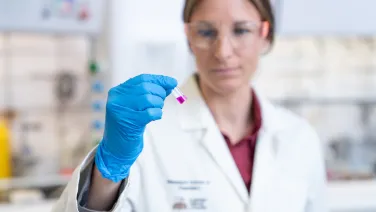
Professor Lara Malins from the ANU Research School of Chemistry is one of two new Snow Medical Research Fellows for 2024.
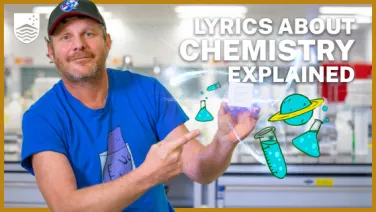
Scientist reacts to popular lyrics about chemistry
RSC chemist Dr Dan Preston puts some of our fave pop artists under the microscope.

RSC is hiring academic faculty in Biological Chemistry
The Research School of Chemistry seeks to appoint two new continuing academic faculty members in Biological Chemistry.

Congratulations to Dr Christoph Nitsche for his article in C&EN
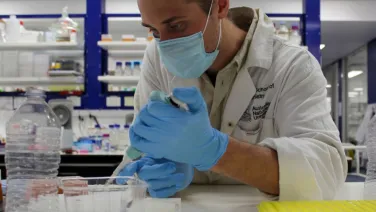
Start-up to tackle plastic crisis with "infinite recycling"
No events are currently scheduled.
Study »
- Summer research
- Bachelor degrees & honours
- Master of Science in Materials Science
- Research areas
- Research groups
- Research projects
- Research facilities
- Research stories
- News & Events
- Current student enquiries
- General enquiries
- Future students enquiries
- Bachelor of Science
- Bachelor of Philosophy (Honours)
- Bachelor of Science (Advanced) (Honours)
- Honours in Chemistry
- Chemistry Ambassador program
- Majors, minors & specialisations
- Student profiles
- Battery lab
- Compounds ANU
- Professional staff
- Emeritus and Honorary
- Past events
- Event series
- Chemistry Future Fund
- Environmental Sustainability Research Grants
- Australian Drug Observatory
- How to give
- Inclusion, diversity, equity and access
- The Arthur Birch lecture
- David Craig visiting professorship
- Rita Cornforth Fellowship
- Current students enquiries
- Current students
- HDR students
- Future Students
- Current students
- Scholarships
- How to apply
- Research at UWA
- Courses and programs
- Research institutes and centres
- Media and experts
- Impact newsroom
- Find an expert
- Media enquiries
- Vice-Chancellor
- History of the University
- Official publications
- Communications and marketing
- Working at UWA
- Business & industry
- International engagement
- Alumni and Friends
- Perth Festival
- Filming and photography
- Giving to UWA
- General enquiries
- Staff directory
- Transport and parking
- Visitors Information Centre
- A -Z list of Websites
A world-class centre for research and teaching in the chemical sciences
Chemistry is a central science that provides an important foundation for multiple scientific disciplines. Chemistry at UWA has a long tradition and outstanding reputation in interdisciplinary research, with activity ranging from chemical biology, catalysis, molecular electronics, reaction dynamics and mechanism, to surface science, molecular materials and nanotechnology, molecular and biomolecular structure determination, and theoretical and computational chemistry.
Our researchers have forged strong connections across academia and industry. We work closely with other schools, research centres and departments within the University, and have strong links with many universities, research centres and industrial partners across Australia and overseas.
UWA is a world-class centre for research and teaching in the chemical sciences. The Bayliss Building, with embedded industry partners, makes the School of Molecular Science a vibrant, leading research environment and allows us to keep pace with the ever-changing nature of modern science.
Chemistry at UWA has a long tradition and outstanding reputation in interdisciplinary research in areas including:
- Biological chemistry
- Inorganic chemistry
- Materials and nanotechnology
- Molecular structure
- Molecular synthesis and catalysis
- Organic chemistry
- Physical chemistry
- Theory and computation
- PhD opportunities

Chemical design of new herbicides using structural guidance
Collaborations and research partners.
Chemistry at UWA is linked to global research networks, including the Matariki Network of Universities , whilst also supporting collaborative programs, exchanges and collaborative research projects with institutions across the world. The impact of our work is elevated by close relationships with industry, philanthropic and consumer partners. In many cases, our industry colleagues are embedded in the Bayliss Building, giving them close access to our cutting-edge facilities and highly-regarded expertise.
Our industry partners include:
Australian Vanadium Ltd (ASX:AVL) is a vertically-integrated battery metals company focussing on energy storage. AVL is progressing the greenfield 'Gabanintha' vanadium deposit, south of Meekatharra in Western Australia. It is also exploring a lithium deposit in South Africa. Vanadium is traditionally used to strengthen steel, but emerging demand is coming from the energy storage market.
Vanadium in electrolyte solution is used in vanadium redox flow batteries (VRB) to store energy. AVL is utilising laboratory space at UWA to electrochemically produce and analytically test vanadium electrolyte with staff and students.
In collaboration with the University the company aims to research commercial advancements in vanadium storage. AVL’s subsidiary, VSUN Energy, sold and commissioned WA’s first VRB.
Proteins date back to the time of sabre toothed cats
Plant scientists at The University of Western Australia have discovered a completely new family of small proteins called PLPs (PawL Peptides) that form by piggybacking on other proteins.
Our courses

Related links
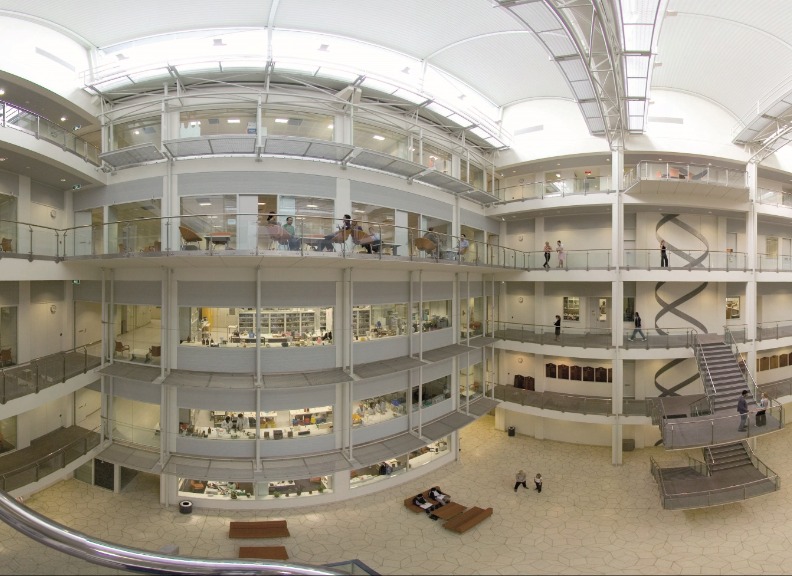
Contact the School of Molecular Sciences
Get in touch
Send an enquiry
Find us on campus
- School of Chemistry
- Our research
Research in the School of Chemistry
The School of Chemistry at the University of Melbourne is one of Australia's leading research centres in the chemical sciences.
Our research themes
With over 25 research groups across the school, our research covers the full breadth of chemical sciences. From functional materials, biological chemistry, and fundamental research through to sustainability and the environment, our research aims to better understand our world and help make it a better place.
Functional materials
Functional materials possess properties with applications in electronics, energy conversion, medicine, food, and catalysis. Our research groups study semiconductor and organic nanoparticles, molecular and polymeric materials, magnetic materials, and metal-organic frameworks.
Biological chemistry and chemical biology
Biological Chemistry and Chemical Biology aims to understand how biological systems work from a chemical perspective and how chemistry can be used to probe and perturb biological systems. Our research includes environmental chemistry, drug design and medicinal chemistry, enzyme catalysis, medical technology and agrichemicals.
Sustainability and the environment
Environmental chemistry seeks to understand chemical and biochemical phenomena in nature, minimise environmental impacts of industry, secure clean air and water, and reduce pollution. Our research includes mitigation of nutrient runoff, clean water, atmospheric chemistry and environmental toxicology.
Fundamental chemical research
Fundamental research underpins the future of chemistry. Fundamental research advances the discipline frontiers, nurtures future scientific and technology breakthroughs, and ensures training at the highest possible levels. Our School is deeply committed to all aspects of fundamental chemistry research.
Learn about our research
Graduate research.
Take your research further with our Honours, Masters and PhD research programs. Find out what research projects you can join when you study with us.
From spectroscopy to advanced microscopy, explore the diverse state-of-the-art facilities available to members of the School.
Partnerships
Our industry partners and sponsors support the School’s research activities. We host several Centres of Excellence, complemented by a wide network of international collaborators.
Research prospectus
As one of the largest and oldest chemistry departments in Australia, our School has a rich and proud history leading the study of chemical sciences. Today, the School remains a global leader in the field. We are a key participant in Bio21 Molecular Science and Biotechnology Institute, a major world-class biotechnology initiative in Victoria.
With an interdisciplinary and dynamic approach, our researchers are exploring solutions to sustainable agriculture, environmental challenges, medical and health advancements, renewables and smart materials. Explore our research prospectus to learn more about the depth and breadth of research within the School.
Download PDF (PDF 4.8 MB)
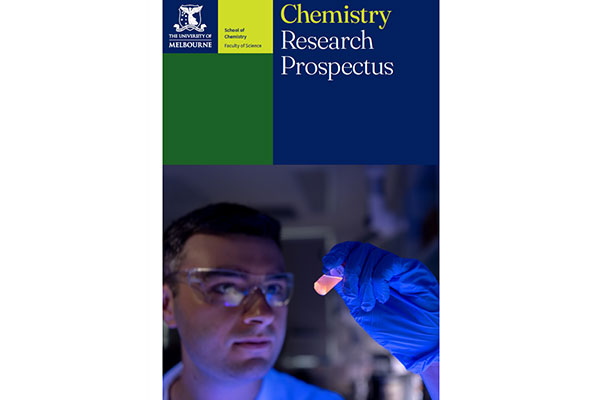
Research themes
Chemistry education and communication research, functional energy materials, molecular innovations in health, self-assembled nanomaterials, research centres and nodes.
- Centre of Excellence in Exciton Science
- Centre of Excellence for Innovations in Peptide and Protein Science
- Key Centre for Polymers and Colloids
Find an expert
Find a phd project.

39 Best universities for Chemistry in Australia
Updated: February 29, 2024
- Art & Design
- Computer Science
- Engineering
- Environmental Science
- Liberal Arts & Social Sciences
- Mathematics
Below is a list of best universities in Australia ranked based on their research performance in Chemistry. A graph of 34.7M citations received by 1.07M academic papers made by 39 universities in Australia was used to calculate publications' ratings, which then were adjusted for release dates and added to final scores.
We don't distinguish between undergraduate and graduate programs nor do we adjust for current majors offered. You can find information about granted degrees on a university page but always double-check with the university website.
1. University of Queensland
For Chemistry

2. University of Melbourne
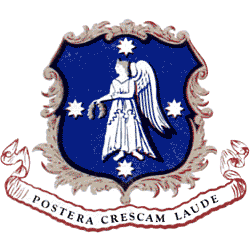
3. University of Sydney

4. Monash University
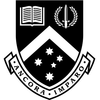
5. University of New South Wales
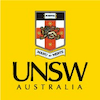
6. Australian National University
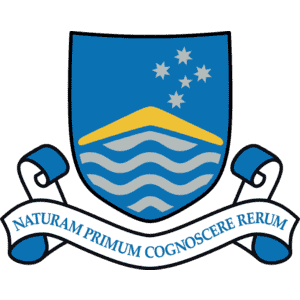
7. University of Adelaide
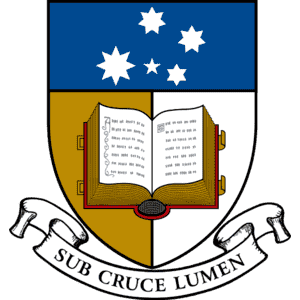
8. University of Western Australia
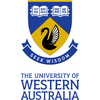
9. University of Wollongong

10. Curtin University

11. Queensland University of Technology

12. Macquarie University

13. University of Newcastle

14. University of Technology Sydney

15. Griffith University
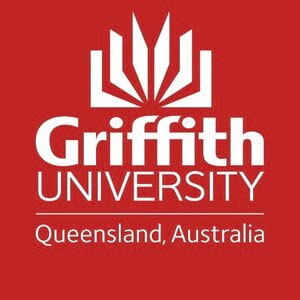
16. RMIT University

17. University of Tasmania

18. Deakin University

19. La Trobe University

20. University of South Australia
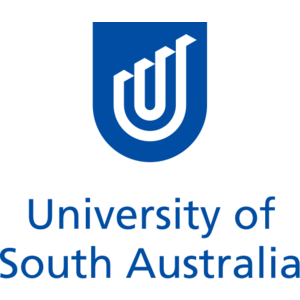
21. Flinders University
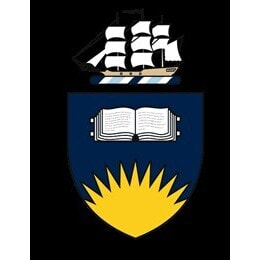
22. James Cook University

23. Murdoch University
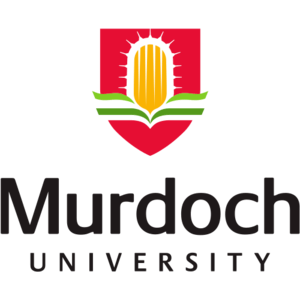
24. Swinburne University of Technology

25. Western Sydney University

26. University of New England, Australia

27. Victoria University
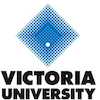
28. Edith Cowan University
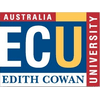
29. Charles Sturt University

30. University of Southern Queensland

31. University of Canberra
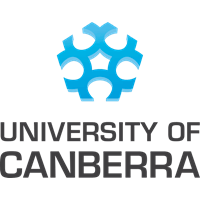
32. Southern Cross University
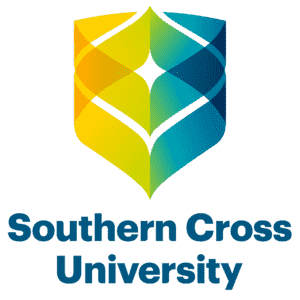
33. Central Queensland University
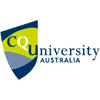
34. Charles Darwin University

35. University of the Sunshine Coast
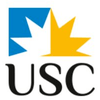
36. Bond University

37. Federation University Australia

38. Australian Catholic University

39. University of Notre Dame Australia

The best cities to study Chemistry in Australia based on the number of universities and their ranks are St Lucia , Melbourne , Sydney , and Clayton .
Chemistry subfields in Australia
We have 9 Organic Chemistry PhD Projects, Programmes & Scholarships in Australia
Institution
All Institutions
All PhD Types
All Funding
Organic Chemistry PhD Projects, Programmes & Scholarships in Australia
Create the molecules that change light-based manufacturing - phd in chemistry at qut (australia), phd research project.
PhD Research Projects are advertised opportunities to examine a pre-defined topic or answer a stated research question. Some projects may also provide scope for you to propose your own ideas and approaches.
Funded PhD Project (Students Worldwide)
This project has funding attached, subject to eligibility criteria. Applications for the project are welcome from all suitably qualified candidates, but its funding may be restricted to a limited set of nationalities. You should check the project and department details for more information.
Tumor-selective metal chelators for multiple theranostic applications
Awaiting funding decision/possible external funding.
This supervisor does not yet know if funding is available for this project, or they intend to apply for external funding once a suitable candidate is selected. Applications are welcome - please see project details for further information.
Reaction Monitoring and Structural Characterisation of Coordination Driven Self-Assembled Systems by Ion Mobility-Mass Spectrometry
Competition funded phd project (students worldwide).
This project is in competition for funding with other projects. Usually the project which receives the best applicant will be successful. Unsuccessful projects may still go ahead as self-funded opportunities. Applications for the project are welcome from all suitably qualified candidates, but potential funding may be restricted to a limited set of nationalities. You should check the project and department details for more information.
Atomic-Scale Regulation on photocatalysts for Solar plastic upcycling
Fluorocarbon activation using organometallic chemistry, novel material (mofs) synthesis using microfluidic reactor, development of advanced anode materials for proton-based solid oxide fuel cells, sustainable recycling of end-of-life electric vehicle batteries, electrolyte design and engineering for next-generation batteries.
FindAPhD. Copyright 2005-2024 All rights reserved.
Unknown ( change )
Have you got time to answer some quick questions about PhD study?
Select your nearest city
You haven’t completed your profile yet. To get the most out of FindAPhD, finish your profile and receive these benefits:
- Monthly chance to win one of ten £10 Amazon vouchers ; winners will be notified every month.*
- The latest PhD projects delivered straight to your inbox
- Access to our £6,000 scholarship competition
- Weekly newsletter with funding opportunities, research proposal tips and much more
- Early access to our physical and virtual postgraduate study fairs
Or begin browsing FindAPhD.com
or begin browsing FindAPhD.com
*Offer only available for the duration of your active subscription, and subject to change. You MUST claim your prize within 72 hours, if not we will redraw.

Do you want hassle-free information and advice?
Create your FindAPhD account and sign up to our newsletter:
- Find out about funding opportunities and application tips
- Receive weekly advice, student stories and the latest PhD news
- Hear about our upcoming study fairs
- Save your favourite projects, track enquiries and get personalised subject updates

Create your account
Looking to list your PhD opportunities? Log in here .
Filtering Results
73 Chemistry PhD positions in Australia
Filtered by, refine your search.
- Last-3-days 1
- Last-7-days 1
- Last-30-days 2
- Scholarship 71
- Research Job 2
- RMIT University 35
- Curtin University 11
- Monash University 8
- University of Adelaide 5
- University of Melbourne 3
- Murdoch University 2
- Swinburne University of Technology 2
- The University of Newcastle 2
- Griffith University 1
- Queensland University of Technology 1
- Southern Cross University 1
- University of Sydney 1
- University of Technology Sydney 1
- Chemistry 24
- Materials Science 12
- Computer Science 6
- Engineering 6
- Economics 3
- Linguistics 3
- Medical Sciences 2
- Philosophy 2
- Arts and Literature 1
- Earth Sciences 1
- Electrical Engineering 1
- Environment 1
Joint Monash-Leipzig PhD programme in Health: Open PhD scholarships in the School of Chemistry at Monash University
Joint Monash-Leipzig PhD programme in Health: Open PhD scholarships in the School of Chemistry at Monash University Job No.: 664818 Location: Clayton campus Employment Type: Full-time Duration: 3
PhD Scholarship in Gold-based drugs for the effective treatment of cancer ( Chemistry )
The scholarship will fund a 3 year PhD candidature to work in the Chemistry Department of the School of Science CAMIC Laboratory. The project is a collaboration with Assoc. Prof Ravi Shukla to test
Research Assistant, Soil Chemistry
Griffith University Close Study International Research Engage Advancement About Griffith Staff myGriffith Staff portal Contact us Close Search Griffith University Search Popular sites Study International Research study Griffith professional Life at Griffith Campuses and facilities Contact...
PhD Scholarship & CSIRO Top-up in Computational Materials Chemistry /Physics
Reactive small molecules such as phosphine are commonly used industrially as fumigants to eliminate pests and microorganisms from bulk commodities and cash crops alike. Many of these fumigants are highly toxic and can only be reliably tested at >1ppm levels. To overcome this limitation, new...
PhD Scholarship in Colloid and Surface Chemistry
This project will examine the behaviour of nanocarriers at cell/bacteria surfaces and response to biological environments and molecules (such as proteins). Research will utilize a suite of cutting edge techniques including confocal, total internal reflection microscopy, AFM, QCM, cryo-TEM and...
PhD Advanced Beneficiation of Minerals
consumption. Systematic experiments will be undertaken to build a clearer understanding of the physical chemistry , and the interplay between the oil and the emulsifier at maximum saturation. The internal
PhD Scholarship in liquid metal interfaces
This project is supported by a full scholarship within the context of ARC discovery project DP240101215. Candidates with a background in Chemistry , Chemical Engineering and Materials science are
PhD Scholarship for the Design and Development of Electrodes for Electrochemical CO2 Reduction
PhD Scholarship for a chemistry , materials or chemical engineering student looking to apply their skills in electrode development for electrocatalytic CO2 reduction. Research will be conducted
PhD scholarship in Fundamental characterisation of high-phosphorus iron ores
. Research area: Hydrometallurgy, chemical engineering, Analytical chemistry , or geochemistry. Prospective candidates will be invited to submit a full application for admission to the PhD Applied Chemistry
2024 HDR Scholarship - in geochronology of young volcanic systems
, or volcanology) by the time of appointment. A solid background in volcanology, geochronology, and geochemistry (expertise in (U-Th)/He and U-Th-Pb geochronology with hands-on experience in analytical chemistry
Searches related to Chemistry
- postdoctoral
- materials science
- organic chemistry
- engineering
- medical sciences
Chemistry phd Jobs in All Australia
Perform a job search.
- Lucas Heights NSW 2234
- Broadway NSW 2007
- Port Kembla NSW 2505
- Kalkallo VIC 3064
- Scoresby VIC 3179
- Dutton Park QLD 4102
Related searches
Principal Radiochemist (Radioisotopes Separations Development)
This is a Full time job
- Ongoing | Full Time | Salary commensurate with skills and experience
- Lucas Heights, Sydney I Health & Wellbeing Programs I Flexible Work Arrangements
- Generous leave provisions including relocation assistance
Postdoctoral Research Associate
Postdoctoral Research Associate - School of Mathematical and Physical Sciences
Lecturer in analytical chemistry.
2025 Cadetship - Chemistry
This is a Part time job
- Year 12, 1st & 2nd year University students
- Earn while you study, ongoing development, learn real-world skills
- Strong support network and mentoring to ensure you are set up for success
R&D Scientist
- Opportunity for academic candidates wanting to enter industry
- Permanent, full time
- Onsite parking
Synthetic Process Chemist
Research Academic - Environmental Analytical Chemistry
- Join a university ranked in the world's top 50
- Collaborate with highly awarded, world-class research colleagues
- Join a vibrant research community where your work genuinely makes an impact
Research Associate - CME
- Full-time, 1-year fixed term contract
- $77,828 - $105,008 (ALA) per annum plus 17% superannuation
- Based at Curtin University in Bentley, Perth, Western Australia
Analytical Chemist - (Wet Chemistry)
Postdoctoral Fellow
- Lead research on Ge alloys for mid-infrared photodetectors
- Conduct advanced experiments, including ion-implantation and microscopy
- Collaborate, design experiments, and mentor students
- Global pharmaceutical company – see where Viatris can take you
- Gain exposure to the newest technology in pharmaceutical manufacturing
- Our benefits include various retail discounts, rewards and recognition programs
Analytical Developmental Chemist
This is a Contract/Temp job
- Located in the eastern suburbs
- Attractive salary
- Immediate start
Radiochemist/Senior Radiochemist
- Generous superannuation and leave provisions
- Lucas Heights I Health & Wellbeing Programs I Flexible Work Arrangements
Research Scientist - Geochemistry
- Play a key role in our research on fluid-rock interactions
- Contribute to innovative energy research aligned with CSIRO’s strategies
- Join CSIRO – Australia’s leading scientific research organisation!
Scientists (Biochemistry)
Lecturer / senior lecturer in digital forensic science.
Gas Process Experimentalist - Zero Carbon Fuels
- Contribute to research and technology within the Gas Process Engineering Team
- Play a key role to drive innovation in sustainable energy practices
- Join CSIRO - Australia's National Science and Innovation Agency!
Validation Scientist - Pharmaceutical Manufacturing
- Global Pharmaceutical Company
- Dynamic, fast paced environment
- Full-time, permanent position based on-site at Dandenong South
Medical Scientific Liaison – Oncology
- Exposure to upskill and develop in your role
- Flexibility and opening doors to other opportunities and skillsets
- Joining a collaborative team of likeminded individuals
Head of Technical Development
Receive new jobs for this search by email, select a job.
- RMIT University
- Posted on: 27 November 2023
PhD positions in France and Australia - MSCA COFUND

Job Information
Offer description.
The Australia France Network of Doctoral Excellence (AUFRANDE) is a highly ambitious interdisciplinary doctoral program linking France and Australia, with a strong support from the industry. AUFRANDE seeks to recruit excellent doctoral researchers of any nationality, gender, and background from around the world .
AUFRANDE offers the recruited researchers an outstanding experience with excellent working conditions, including full-time employment contract in France with attractive salaries including social security benefits, a unique international research environment, and an innovative research training program in which they will deepen core scientific skills and develop new ones in complementary disciplines and sectors.
International mobility is a core feature of the program with a residential year in Australia and participation in regular events where researchers share common experiences and build a sustainable community, laying a strong foundation for long-term impact on future collaborations and careers.
15+ industry-supported positions are now open!
Benefits for recruited researchers include:
- Enrolment in a doctoral program in 2 entities in France and Australia , with the chance to be awarded dual doctorates;
- Work on innovative projects of high commercial and societal value;
- Be recruited in France under a full-time employment contract for a minimum period of 36-months;
- Earn an above-national standard salary including social security coverage;
- See the world with once-in-a-lifetime experiences, including a 6 to 12 months residential stay in Australia ;
- Form part of a rich multidisciplinary network of researchers and supervisors;
- Work closely with industry leaders and gain experience with the AUFRANDE’S pool of industry supporters.
AUFRANDE is co-funded by the European Union’s Horizon Europe research and innovation program under the Marie Skłodowska-Curie grant agreement no. 101081465.
Where to apply
Requirements.
Applicants must meet the academic criteria for admission to the doctoral programs at both the French and the Australian enrolling universities.
Please refer to section 4 of each position description (PDF downloadable from https://aufrande.eu/recruitment/open-positions/ ) and to the universities' website to understand if you meet entry requirements for the position.
Note that you may apply if you are currently enrolled in a Master's program and will graduate during 2024.
Applicants must have a demonstrable C1 level of English (both speaking and in writing).
Additional Information
Applicants must fulfill ALL the following minimum eligibility criteria at the date of the call deadline (27 August 2024):
1. Applicants must have not yet been awarded a doctoral degree . Researchers who have successfully defended their doctoral thesis but who have not yet formally been awarded the doctoral degree will NOT be considered eligible to apply.
2. Applicants may not have resided or carried out their main activity (work, studies, etc.) in France for more than 12 months in the last 3 years .
3. Applicants may not be permanently employed by the chosen Research Host.
1 - Online application: Submit your complete application through the online portal before 27 August 2024. Applications not complying with AUFRANDE and the 2 PhD awarding institutions’ requirements will be disregarded.
2 - Eligibility check: AUFRANDE Team and both PhD awarding institutions will check whether your application complies with the requirements and meets the MSCA eligibility criteria.
3 - Assessment of eligible applications and first ranking: Applications that meet the eligibility criteria will be assessed by the assigned Selection Panel against the Evaluation Criteria (refer to the Guide for Evaluators, available on AUFRANDE website for more information).
4 - Interviews: Applicants shortlisted by the Selection Panel will be invited for an interview (by videoconference). Applicants will be contacted at least 5 days before the date of the interview.
5 - Final ranking and allocation of positions; If you have been successful at the interview and are the preferred candidate for the position, you will receive a conditional offer letter for admission into the AUFRANDE Program around November 2024.
6 - Onboarding of successful Applicants: You will need to complete the registration process to be enrolled as a Doctoral Candidate at your 2 PhD awarding institutions, in France and Australia, and formalize your employment contract at your research host. You will then receive your offer letters issued by the institutions.
7 - Stat your PhD in January 2025.
Work Location(s)
Share this page.
TCS is here to make a difference through technology.
Leading the way in innovation for over 55 years, we build greater futures for businesses across multiple industries and 55 countries.
- Capital Markets
- Consumer Goods and Distribution
- Communications, Media, and Information Services
- Energy, Resources, and Utilities
- Life Sciences
- Manufacturing
- Public Services
- Travel and Logistics
- Artificial Intelligence
- Cognitive Business Operations
- Cybersecurity
- Data and Analytics
- Enterprise Solutions
- IoT and Digital Engineering
- Network Solutions and Services
- TCS Interactive
- Sustainability Services
- TCS BFSI Platforms
- TCS CHROMA™
- TCS Customer Intelligence & Insights™
- TCS ERP on Cloud
- TCS Intelligent Urban Exchange™
- TCS OmniStore™
- TCS Optumera™
- Quartz™ – The Smart Ledgers™
- TCS MasterCraft™
- TCS Research
We’re in it for good, driving positive change for the benefit of all.
Our expert, committed team put our shared beliefs into action – every day. Together, we combine innovation and collective knowledge to create the extraordinary.
- Corporate Sustainability
- Diversity, Equity, and Inclusion
- Corporate Social Responsibility
- The TCS Way
- Sports Sponsorships
Extraordinary expertise leads to remarkable results.
We share news, insights, analysis and research – tailored to your unique interests – to help you deepen your knowledge and impact.
- Customer Stories
- Perspectives
- Global studies
- Sustainability
- Future of Work
- Health & Wellness
- Data Analytics and Storage
Want to be a global change-maker? Join our team.
At TCS, we believe exceptional work begins with hiring, celebrating and nurturing the best people — from all walks of life.
- Mainland China
- Hong Kong SAR
- New Zealand
- Philippines
- Republic of Korea
- Chinese Taipei
- Netherlands
- Switzerland
- United Kingdom
- Saudi Arabia
- South Africa
- United Arab Emirates
Find the latest news about TCS in our Newsroom
Get access to a catalog of the latest news stories from across TCS. Discover our press releases, reports, and company announcements.
Recent Press releases
Recent news, recent recognitions.
- Press releases
- News alerts
- Analyst recognition
TCS works hand in hand with world-leading investors.
- Latest Quarter Commentary
- Annual Report Section
- Quarterly Earnings Reports
- Download TCS Data Sheet
- Erstwhile CMC Financials
- Press Releases
- Corporate Actions
- Environment
- Policies and Reports
- Stakeholder Engagement and Identification of Material Issues
- Investor FAQs
- Stock Information
- Analyst Coverage
- Subsidiaries
- Subscribe to Investor Updates
- Unclaimed Dividend Information
Top Results
- TCS Careers
- TCS India Careers
A lifetime of triumphs requires a Smart beginning
Registrations open for graduates of 2023 & 2024 for TCS B.Sc Ignite & Smart Hiring
You have these already downloaded
We have sent you a copy of the report to your email again.
- Registration status: Close
- Registration end date: Monday, 24th June 2024
- Test Date: To be communicated
About TCS B.Sc Ignite & Smart Hiring – Batch of 2023 & 2024
TCS B.Sc Ignite & Smart Hiring is exclusively for candidates from the stream of BCA, B.Sc (IT, Computer Science, Mathematics, Data Science, Statistics, Physics, Chemistry, Electronics, Cyber Security, Biochemistry), B.Voc in CS/IT from the Batch of 2023 & 2024.
TCS aims to tap into the potential of science graduates who may not have pursued traditional engineering degrees but possess the necessary aptitude and passion for technology. By providing the right platform and resources, TCS enables these individuals to build rewarding careers in IT.
Students for both Smart B.Sc and Ignite will undergo a common integrated test.
TCS B.Sc Ignite:
Students who perform exceptionally well during the TCS B.Sc Ignite & Smart Hiring selection process will get an opportunity to join TCS B.Sc Ignite – TCS’ unique ‘Science to Software’ program. This program trains you in trending technologies and will open the doorway to a holistic and global IT career at par with Engineers.
Key features of the program:
- World Class Initial Learning Program - TCS B.Sc Ignite offers one of the world's best Initial Learning specifically tailored for science graduates to perform high-quality Software Engineering jobs.
- A unique blend of cutting-edge technologies, art, and innovation - learn by building exciting innovative products using technologies like Cloud, Blockchain, AR/VR/XR, AI/ML/GenAI, Robotics, and Digital Engineering.
- Quality of work and career growth at par with Engineering Graduates.
- Exclusive higher education opportunities - pursue specially tailored postgraduate degrees with leading Indian universities, with your TCS Initial Learning Program being recognized towards 50% of your higher education course credits.
- Our compensation package - the opportunity to participate in programs that can enhance your identity, career growth, and compensation to the extent of 2.5x as early as 1 - 2 years of joining.
Join Ignite and unlock a world of possibilities. Together, let's redefine the boundaries of what's possible in the IT industry. Apply now and take the first step towards an extraordinary career!
TCS Smart B.Sc Hiring program lays its emphasis on nurturing talent and providing comprehensive training to ensure that candidates are well-equipped to excel in their roles.
Key features:
- Smart hires perform Techno Functional roles for our customers across TCS.
- You will be deployed in projects across various domains, including Engineering, Quality Assurance, Data Analytics, and more.
- We offer a structured training curriculum covering technical skills, domain knowledge, and soft skills, laying a strong foundation, and thereby bridging the gap between academic learning and industry requirements.
- The role demands rigor in process enablement, good speaking and writing skills, teamwork, and the application of strong analytical abilities.
For more details on eligibility criteria, kindly refer to the "Test Eligibility" section below.
Application Process for TCS B.Sc Ignite & Smart Hiring – Batch of 2023 & 2024
Below steps to be followed for registration:
Step 1. Logon to the TCS NextStepPortal here .
Step 2. Verification Details as per Aadhaar
- It is important and mandatory to update your details correctly.
- Incorrect details submitted may lead to disqualification of your candidature.
Step 3. Register and apply for the TCS B.Sc Ignite & Smart Hiring for Batch of 2023 & 2024.
- Scenario A - If you are a registered user, kindly login and proceed to complete the application form. Upon submission, kindly click on ‘ Apply for Drive ’.
- Scenario B - If you are a new user, kindly click on Register Now, choose the category ‘IT ’, and proceed to fill in your details. Submit your application form and click on ‘ Apply for Drive ’.
Important: Please ensure that the details in the TCS Application Form are complete and accurate (Academic Details, Internship, Work Experience, if any).
Step 4. Choose your preferred test center & then click on Apply. Please Note, that the test center once chosen cannot be changed.
Step 5. To confirm your status, check ‘Track Your Application’. The status should reflect as ‘Applied for Drive’ .
Important Note:
Please note that this is an In-centre test.
Kindly be informed that the allotment of seats in the respective centers will be on a ‘First-Come-First-Serve’ basis and hence it is important to register and apply at the earliest to select your preferred Test Center. The selection of a preferred city will be restricted once the seats are full (you will not be able to select your preferred city if the seats are already full).
- You must have all your original documents as applicable (Marksheets, Degree Certificate, Internship Letter, Work Experience Letter if any).
- Communication related to the test will be shared with you by ‘TCS iON – Our Test Provider.’
- TCS does not send job offers/any hiring-related communication from unofficial email IDs like Gmail, Rediff mail, Yahoo mail, Hotmail, etc.
- TCS does not ask candidates to deposit any money for job offers. TCS is not associated with any external agency/company to conduct any interviews or make offers of employment on its behalf.
For any assistance, please reach out to our TCS TAG Helpline Team.
Email ID: [email protected] | Toll-Free Helpline No: 18002093111
Test Pattern
TCS iON is the test provider for the TCS B.Sc Ignite & Smart Hiring process. Candidates have to appear in person to take the test.
The duration of the assessment is 120 minutes and is divided into 4 sections:
- Numerical Ability
- Verbal Ability
- Reasoning Ability
- Coding (Optional) - Candidate can solve the coding question using any of these languages C, C++, Java, Perl, Python.
Please click on the link below to download the sample question paper for practice.
Sample Question Paper PDF
Eligibility criteria for TCS B.Sc Ignite & Smart Hiring for batches of 2023 & 2024
Test Eligibility:
- Courses and Discipline: Full-time graduates from BCA, B.Sc (IT, Computer Science, Mathematics, Data Science, Statistics, Physics, Chemistry, Electronics, Cyber Security, Biochemistry), B.Voc in CS/IT from the batch of 2023 & 2024 are eligible.
- Percentage: Minimum aggregate (aggregate of all subjects in all semesters) of 50% or above or equivalent CGPA in each of 'Class 10th, Class 12th, Diploma (if applicable), Graduation which includes successful completion of final year/semester.
- The batch of 2023: candidates should not have any backlog at the time of appearing for the TCS selection process. The course should have been completed within the stipulated duration of the course.
- The batch of 2024: one active backlog at the time of appearing for the TCS selection process is permitted. However, it is mandatory that the course be cleared and completed within the stipulated time duration of the course without any backlogs to be eligible for joining TCS if selected.
- Gap/Break in Education: It is mandatory for students to declare gaps in education, if any in the TCS Application Form. The overall academic gap should not exceed 24 months until the highest qualification. Relevant document proof, as applicable, will be checked for gaps in education.
- Extended Education: It is mandatory that the course be cleared and completed within the stipulated duration of the course without any backlogs to be eligible for joining TCS.
- Course Types: Only full-time courses will be considered (part-time/correspondence courses will not be considered). Candidates who have completed their Secondary and/or Senior Secondary course from NIOS (National Institute of Open Schooling) are also eligible to apply if the other courses are full-time.
- Age: Minimum age – 18 years and maximum age - 28 years.
- Work Experience: Please note, the role is only for ‘Entry Level Requirement’. However, prior work experience, if any is required to be mandatorily declared by the candidates in the TCS Application form and necessary documents supporting this experience is required to be submitted by the candidates at the time of the TCS selection process.
Note: Kindly note that we have a stringent eligibility criteria and a robust selection process. Your eligibility as per the defined criteria will be checked at various stages of the selection process. At any point in time, if you are found ineligible, or data shared by you is found discrepant, your candidature will be disqualified.
Hiring Categories
B.Sc hiring has two categories: Ignite and Smart. Basis the test performance, the candidates will be shortlisted for Ignite or Smart hiring. The final offer category of the test-shortlisted candidates will be subject to performance in the interview process.
- CTC for Ignite - 2.8 LPA
- CTC for Smart - 1.9 LPA
Additionally, candidates offered under Ignite will have the opportunity to participate in programs that can enhance their identity, career growth, and compensation to the extent of 2.5x as early as within 1 - 2 years of joining.
Q1. Where can I register for the TCS B.Sc Ignite & Smart Hiring Batch of 2023 & 2024?
A1. To register, click here to fill the form and please ensure you ' Apply for Drive.'
Q2. I am not able to find the apply for drive option. What should I do?
A2. Once you complete your application form, logout, and login again.
Then click on ' Apply for Drive.' If you are not getting the ' Apply for Drive' option, please check the below:
- If you have completed/submitted your application form.
- If you have erroneously registered under BPS instead of IT (You will need to write to [email protected] for the deletion of your profile under BPS and once your profile has been deleted, please create a new profile under IT).
- Check the qualification you have entered in the application form.
- Check the Year of Passing you have entered in the application form.
Q3. I am not able to select my preferred City for the Test. What should I do?
A3. The selection of preferred city will be restricted once the seats are full (you will not be able to select your preferred city if the seats are already full). However, you can select another available city of your choice.
Q4. What will be the test pattern for TCS B.Sc Ignite & Smart Hiring for the batch of 2023 & 2024?
A4. The TCS B.Sc Ignite & Smart Hiring test would include the following sections:
- Numeric Ability
- Verbal Ability
Q5. What would be the Eligibility Criteria for TCS B.Sc Ignite & Smart Hiring Batch of 2023 & 2024?
A5. Refer to the "Eligibility Section" given above.
Q6. Which all Specializations are Eligible?
A6. Full-time graduates from BCA, B.Sc (IT, Computer Science, Mathematics, Data Science, Statistics, Physics, Chemistry, Electronics, Cyber Security, Biochemistry), B. Voc in CS/IT from the batch of 2023 & 2024 are eligible.
Q7. I applied under the TCS B.Sc Ignite & Smart Hiring earlier and was not selected during the selection process. Can I re-apply now?
A7 . Yes, you can re-apply for TCS B.Sc Ignite & Smart Hiring. Please write to [email protected] from your registered email ID with details of your DT ID for further support.
Q8. When are the Interviews scheduled?
A8. Interview schedule will be communicated to the shortlisted students (based on the test performance) on their registered email Id.
Q9. When is the Test Date?
A9. The test will be scheduled in batches in July 2024. The exact test date will be communicated to your registered email ID a few days before the test.
Q10. I already have a TCS Smart B.Sc offer. Can I re-apply now?
A10 . No, you are not eligible for the TCS B.Sc Ignite & Smart Hiring if you already have a TCS Smart B.Sc offer with you.
Q11. If I already have a DT number, do I need to register again?
A11. If you already have a DT reference number (under IT), please login to https://nextstep.tcs.com and proceed to submit the application form and subsequently "Apply for Drive."
Q12. I have forgotten my DT Reference ID, where do I get it?
A12. You would have got a mail upon successful registration in https://nextstep.tcs.com . The Reference ID would be mentioned in the same
Q13. My college has CGPA grading system. However, in my application form, there is only an option to update my marks. What should I do?
A13. Please convert CGPA into marks as per the guidelines prescribed by your university/applicable in your state, complete the application form, and then click on ‘Apply for Drive’ .
Example: To understand the calculation of percentage in a better way, let us take an example, a candidate has secured a 7.2 CGPA | Overall Percentage of Marks = 10 x CGPA | Overall Percentage of Marks = 7.2*10 | Ans. 72%
Q14. Can I change my photograph in the application form?
A14. Yes, you can change your photograph before you 'Submit the Application Form.’ Request you to carefully follow the instructions while uploading the photograph.
Q15. I already have my DT number. I need to update my marks/CGPA in my application form. How can I do so?
A15. You can edit the details by clicking 'Edit Application Form' upon logging in to your NextStep account and update the required details.
Q16. I already have my DT number. Can I make changes to my Name/ Date of Birth/ Address/ Email ID / Telephone Number?
A16. No, changes cannot be made to the above fields once your profile has been created.
Q17. I am not able to download my application form from the Next Step Portal.
A17. Please upload your photo and CV once again as per the format prescribed and then preview your application form. This would also allow you to download your application form.
Q18. I am getting an error while updating my 10th or 12th Standard details in the application form. What should I do?
A18. You need to enter a minimum of 9 months in your 10th and 12th standard course duration details. Please check if the course duration mentioned is less than 9 months.
Q19. I am not able to participate in the test as mentioned in the schedule. Can I change the timing of the test?
A19. No, the test time and date cannot be changed.
Q20. How will we get the Test results of the TCS B.Sc Ignite & Smart Hiring for the Batch of 2023 & 2024?
A20 . Only shortlisted students will receive further communication on the interview schedule on their registered e-mail IDs
Q21. Is this a full-time or part-time job?
A21. The career opportunities presented are full-time jobs.
Q22. Do I have to incur any cost to appear for the TCS B.Sc Ignite & Smart Hiring?
A22. TCS does not charge any fees at any stage of recruitment process. TCS is not affiliated with any agent/agency/company to make offers of employment on its behalf.
Q23. My account is locked. How can I unlock it?
A23. Please note that after 3 unsuccessful OTP attempts, your account will be locked for 4 hours. You will get 2 more OTP attempts after 4 hours, however if still wrong OTP inputs are given, your account will be locked in for the day. You will get the next login attempt with OTP post the date change (i.e., next day). Hence, we request you to be careful with your login ID and OTP.
Request you to use a Desktop/Laptop. Please clear the cache, history and cookies and use the latest version of Internet Explorer/Google Chrome.
Q24. What will be my work location?
A24. Your joining location will be discussed with you during the interview process, and your location preference will be taken into consideration. However, the final location assigned would be at the sole discretion of TCS depending on business needs.
Q25. Whom do I contact for any assistance?
A25. E-mail ID – [email protected] Helpline No – 18002093111 (Toll-free)
Important points to note:
Kindly note that we have a stringent eligibility criteria and a robust selection process. Your eligibility as per the defined criteria will be checked at various stages of the selection process. At any point in time, if you are found ineligible, TCS reserves every right to not proceed with the candidature.
TCS does not ask for any sort of payment or security deposit from candidates for jobs, internships, or training. Stay aware of any fraudulent offers or imposter recruitment entities impersonating TCS.
- Privacy Notice
- Cookie Policy
- Security Policy
- California Notice at Collection
- Customize Cookies

IMAGES
VIDEO
COMMENTS
Studying Chemistry in Australia is a great choice, as there are 9 universities that offer PhD degrees on our portal. Over 458,000 international students choose Australia for their studies, which suggests you'll enjoy a vibrant and culturally diverse learning experience and make friends from all over the world.
Cotutelle PhD position (3 years) on the interface of chemical engineering, chemical kinetics and synthetic macromolecular photochemistry at Ghent University (Belgium) and Queensland University of Technology (Brisbane, Australia). Queensland University of Technology School of Chemistry and Physics. The project will focus on the in-depth ...
8. 201-300. Australian National University. 9. 151-200. University of Adelaide. 10. 101-150. This information is based on the number of papers published by an institution in an academic subject in journals, this is from the latest rankings tables, researched and published by Academic Ranking of World Universities.
City Campus. 3-4 years full-time, 6-8 years part-time. DR229. 079822J. View plan. *The maximum duration of the PhD program is 4 years full-time and 8 years part-time. However, candidates are expected to complete their program within 3-4 years full-time equivalent and 6-8 years part-time equivalent.
Complete your PhD in Science with an independent research project to produce an original thesis and contribution to knowledge. ... and soak up all the professional development opportunities and international connections that come with studying at Australia's leading university. ... BioSciences, Chemistry, Geography, Earth and Atmospheric ...
We welcome general inquiries from graduates interested in undertaking postgraduate study - either call us on +61 3 9035 6459 or email the Graduate Research support team. Learn under the guidance of world-leading staff to pursue a career in research or academia in your area of interest.
This includes the submission and successful examination of a thesis of up to 100,000 words. Completion of a standard program for a Doctor of Philosophy requires a minimum of 96 units and a maximum of 192 units of enrolment in the research component. Admission Requirements. At a minimum, all applicants must meet program-specific academic/non ...
The School of Chemistry is dedicated to improving our world and training outstanding graduates in chemistry. We research functional materials, chemical biology, sustainability and the environment with cutting-edge knowledge and technology. ... The School of Chemistry at the University of Melbourne is one of Australia's leading research centres ...
PhD & MPhil. Graduate research is essential to count as a fully trained chemist, since practical laboratory/project experience is considered an integral part of chemistry education. During graduate research, you work on your own, apply your skills in a research project and practice stating and solving scientific problems.
Outline. As a doctoral research degree candidate, you will uncover new knowledge either by the discovery of new facts, the formulation of theories or the innovative reinterpretation of known data and established ideas. Your research will use an in-depth understanding of theories and concepts to develop practical solutions for real-world problems.
Driving breakthroughs in energy, health and the environment. Working with industry, government and the community to support researchers and educate aspiring chemists as they work to address critical real-world challenges. We are recognised as one of the top Chemistry Schools in Australia. Our philosophy and practice of using research-led ...
About Chemistry at UQ. Our internationally renowned scientists deliver world-class teaching and research in the key sub-disciplines of organic chemistry, inorganic chemistry, physical chemistry and computational chemistry. We apply these key disciplines in an integrated and cohesive way through biological chemistry and materials chemistry.
The Research School of Chemistry is the home of chemistry at the Australian National University and the breadth of our teaching and research activities mirrors the cross- and multi-disciplinary impacts of chemistry in our daily lives. ... Could a PhD in piezoelectric materials help spark your career?
A world-class centre for research and teaching in the chemical sciences. Chemistry is a central science that provides an important foundation for multiple scientific disciplines. Chemistry at UWA has a long tradition and outstanding reputation in interdisciplinary research, with activity ranging from chemical biology, catalysis, molecular ...
Graduate research. Take your research further with our Honours, Masters and PhD research programs. Find out what research projects you can join when you study with us. ... As one of the largest and oldest chemistry departments in Australia, our School has a rich and proud history leading the study of chemical sciences. Today, the School remains ...
Cutting-edge research at the frontier of chemistry. We rank among the top chemistry departments in Australia. Our mission is to address real-life challenges through research excellence and to educate aspiring chemists to become leaders in industry and society.
Cotutelle PhD position (3 years) on the interface of chemical engineering, chemical kinetics and synthetic macromolecular photochemistry at Ghent University (Belgium) and Queensland University of Technology (Brisbane, Australia). Queensland University of Technology School of Chemistry and Physics. The project will focus on the in-depth ...
PhD position in methane cycling in mangroves in Australia Background: Methane (CH4) is a potent greenhouse gas that contributed 35% of the greenhouse gas-driven global warming in 2010-2019 CSIRO Industry PhD Program Scholarships - Space Down Under
Nanotechnology 36. Nutrition and Food Science 38. Organic Chemistry 39. Petrology and Geochemistry 37. Pharmacy 29. Physical chemistry 38. Polymer science and Plastics engineering 21. Radiochemistry 31. Below is the list of 39 best universities for Chemistry in Australia ranked based on their research performance: a graph of 34.7M citations ...
Pushing the limits of electronic delocalization in organic molecules. UNSW Sydney School of Chemistry. A project exploring organic materials chemistry is available in the Peeks group at UNSW. Read more. Supervisor: Dr M Peeks. 12 June 2024 PhD Research Project Funded PhD Project (Students Worldwide) More Details.
PhD Scholarship & CSIRO Top-up in Computational Materials Chemistry /Physics. Reactive small molecules such as phosphine are commonly used industrially as fumigants to eliminate pests and microorganisms from bulk commodities and cash crops alike. Many of these fumigants are highly toxic and can only be reliably tested at >1ppm levels.
Find your ideal job at SEEK with 100 Chemistry Phd jobs found in Australia. View all our Chemistry Phd vacancies now with new jobs added daily!
The Australia France Network of Doctoral Excellence (AUFRANDE) is a highly ambitious interdisciplinary doctoral program linking France and Australia, with a strong support from the industry. ... Chemistry. Computer science. Engineering. Environmental science. Geosciences. Technology. Mathematics. Physics. All. ... Note that you may apply if you ...
Test Eligibility: Courses and Discipline: Full-time graduates from BCA, B.Sc (IT, Computer Science, Mathematics, Data Science, Statistics, Physics, Chemistry, Electronics, Cyber Security, Biochemistry), B.Voc in CS/IT from the batch of 2023 & 2024 are eligible. Percentage: Minimum aggregate (aggregate of all subjects in all semesters) of 50% or above or equivalent CGPA in each of 'Class 10th ...